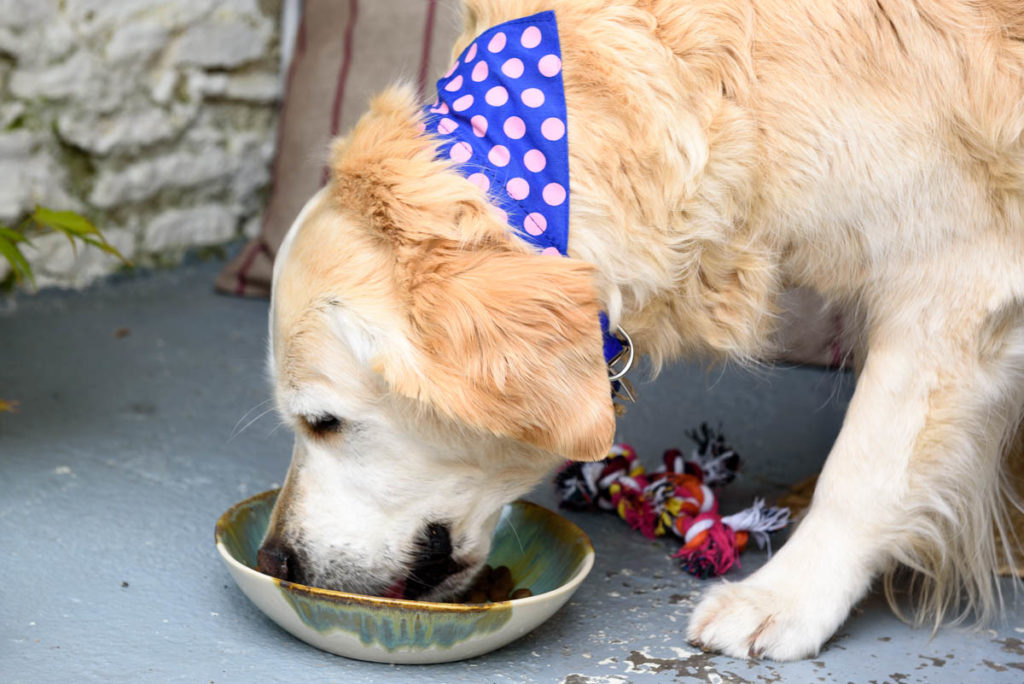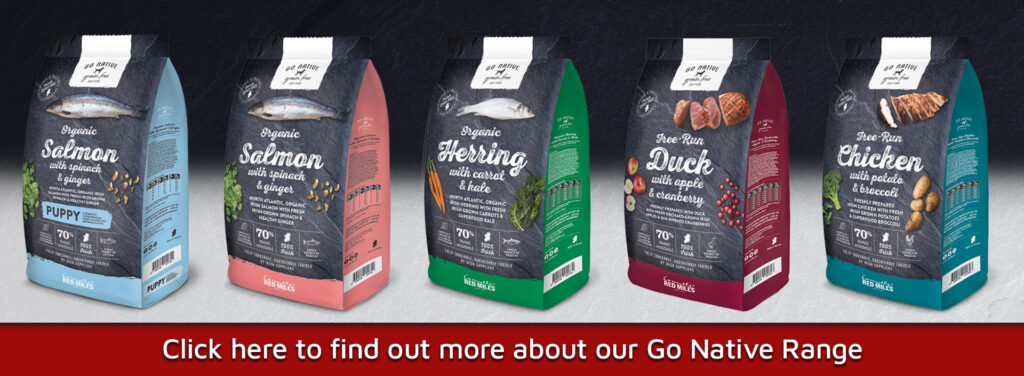Are Sweet Potatoes Good for My Dog?
Share
[Sassy_Social_Share]Delicious and nutritious sweet potatoes are popping up on restaurant menus more and more. They’ve grown beyond a great roasting vegetable to become popular as chips, in soups and curries, and as an innovative addition to many other delightful dishes. If you are enjoying them at home, you might notice a pair of big, brown eyes trained on you, pleading for a taste. It is always wise to check before sharing any food with your canine companion. You might love this root vegetable, but can dogs eat sweet potato? In a word, yes. But it is important to know how can dogs eat sweet potatoes and what it offers them.

Sweet potatoes are extremely popular with dogs. And why wouldn’t they be? Their distinctive flavour is hard to resist, especially when we know these deep orange tubers are packed with important vitamins that both humans and dogs need. But like many other foods, we need to beware of giving our dogs too much of a good thing.
Why Can Dogs Eat Sweet Potato?
It is safe to say our pet dog’s canine ancestors were unlikely to dig sweet potatoes out of the ground, but dogs are omnivores. They are designed to eat a variety of foods, unlike cats, who are strict carnivores. Sweet potatoes are one way dogs can get several critical nutrients.
- Fibre – Individual dogs can be prone to loose stools or constipation. Sweet potato is a great source of fibre, which can help with both problems. Fibre bulks up the stool, helping it to move through the body at the right speed. A little sweet potato can be just the thing when your dog is constipated or having loose stools, but if the problem persists, it’s best to contact your vet.
- Vitamin A – It isn’t just sighthounds that enjoy good vision. The vitamin A in sweet potato supports your dog’s vision as well as their nervous system, muscles, skin and coat. Adding a bit of sweet potato to their diet occasionally can help them look good and see well. It’s a key part of a healthy diet, and dogs love getting it in the form of sweet potato.
- Calcium – Large dogs and older dogs in particular need plenty of calcium for strong, healthy bones. Good bone health is critical to a happy old age. All dogs need a daily walk in the fresh air, and having enough calcium in their diet can help ensure they enjoy that walk without bone or joint pain in their senior years. Calcium is also important for your dog’s teeth, and their teeth are important for their quality of life.
- Iron – This mineral is fundamental to canine and human health. It ensures our blood is rich in oxygen. Low iron in dogs is rarely due to dietary problems because their diet is mostly meat. If a dog has suffered a health problem that caused their iron levels to drop, sweet potato can be a tasty way to build it back up.
Sweet potato should not be a large part of your dog’s diet. Instead it can be a small but significant part. It’s a delicious way to deliver key nutrients and add some variety to your dog’s food. But too much sweet potato can be dangerous.
Can Sweet Potato Be Dangerous for Dogs?
The issue with sweet potato for dogs is the risk of giving them too much of a good thing. Excessive sweet potato in your dog’s diet can cause or worsen some serious medical problems. Some breeds are more susceptible than others. The main worry about giving your dog too much sweet potato is their cardiac health. While some sweet potato is good, it must be balanced in the right proportion in their diet. In the USA, some boutique brands of grain-free dog food have been linked by the Food and Drug Administration to a disease called Canine Dilated Cardiomyopathy. The working theory is that some grain-free dog foods used an excessive amount of sweet potato, potato and/ or peas and other legumes in their food. Some breeds, particularly larger ones, have a tendency towards Canine Dilated Cardiomyopathy and these goods can be a risky choice for them. Sweet potatoes and foods or treats that contain a significant amount of sweet potato are not recommended for Cocker Spaniels, Boxers, Doberman Pincers, Irish Wolfhounds, Great Danes, Newfoundlands or Saint Bernards.
Another risk of going overboard with sweet potato in your dog’s diet is that like other starchy carbohydrates, they turn to sugar in your dog’s body as they are digested. Some is fine, but an excess can lead to glucose spikes and blood sugar crashes. Over time, an overly starchy diet can lead to problems such as obesity, diabetes and yeast infections.
How Can Dogs Eat Sweet Potato Safely?
Balance is the key to giving your dog the benefits of sweet potato without the dangers. While an occasional serving of sweet potato table scraps isn’t a problem, if you want to make sweet potato a regular part of your dog’s diet, your safest option is to find quality dog food and treats that include it.
If your dog has ongoing problems with constipation or loose stools, a grain-free diet with a safe amount of sweet potato can help. First, see your vet to rule out any medical problems. In some cases, the dog’s food will be the problem, particularly if they have a food intolerance. For these dogs, a food such as Go Native Salmon or Herring can be an ideal option.

You can include sweet potato in your dog’s diet on a smaller scale with treats such as Go Native Carrot and Sweet Potato Dental Sticks. They’ll love the taste and the chewy texture, and you’ll know they are getting that boost of fibre, vitamin A and calcium along with the tooth-cleaning benefits. You can also be confident you’re giving your beloved pet wholesome, traceable, sustainable ingredients when you choose Go Native foods or treats.





